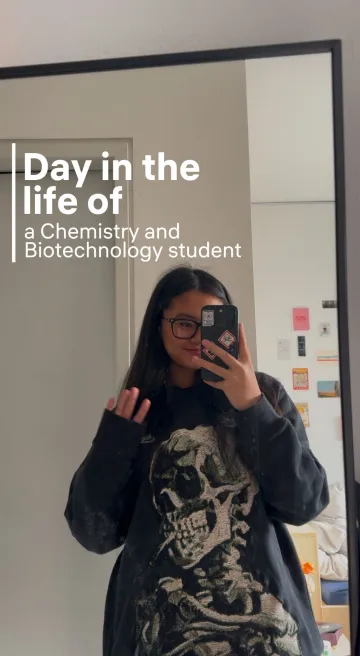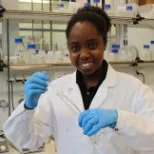

This study program belongs to the School of Science
Location: On Campus
Chemistry and Biotechnology (CBT) is a transdisciplinary field that combines the scientific principles of chemistry and biology to solve real-world problems. The English-taught program focuses on the composition, structure, behavior, and transformations of elements, compounds, molecules, and ions and how they can be applied in biotechnology. The biotechnology component of the program teaches students how to use biocatalysts and biomolecules to create a more sustainable future, along with the principles of biorefining and the circular economy.
The study program includes organic, inorganic, analytical, and physical chemistry modules, as well as relevant mathematics, engineering, and industrial practice. By completing this program, students will gain a strong understanding of the molecular approach and the commercial importance of chemistry and biotechnology.
Graduates of the Chemistry and Biotechnology degree program will be equipped with the knowledge, research skills, and problem-solving abilities necessary for a successful career in chemistry and/or biotechnology and for pursuing advanced studies at the Master's or Ph.D. level.
The undergraduate program at Constructor University is a three-year, 180-credit-point program designed to prepare students for a wide range of career paths.
The “4C Model” is the program's backbone, with disciplinary content grouped into three themes according to study years: CHOICE-CORE-CAREER. Additionally, the “CONSTRUCTOR Track”, an integral part of the program, runs parallel throughout the program. It provides students with multidisciplinary content and essential skills such as argumentation, data visualization, societal engagement, and communication.
The curriculum allows students to tailor their education to their goals and to explore different fields of study, with the flexibility to change their major within the first year. Moreover, the programs include a mandatory internship and a study-abroad opportunity in the fifth semester to provide students with hands-on experience and a global perspective.

The first study year is characterized by a university-specific offering of disciplinary education that builds on and expands upon the students’ entrance qualifications. Students select introductory modules for a total of 45 CP from the CHOICE area of a variety of study programs, of which 15-45 CP will belong to their intended major.
To pursue Chemistry and Biotechnology (CBT) as a major, the following CHOICE modules (30 CP) are mandatory (m):
- CHOICE Module: General and Inorganic Chemistry (m, 7.5 CP)
- CHOICE Module: General Biochemistry (m, 7.5 CP)
- CHOICE Module: Introduction to Biotechnology: Microbiology and Genetics (m, 7.5 CP)
- CHOICE Module: General Organic Chemistry (m, 7.5 CP)
In their second year, students take with a total of 45 CP from a selection of in-depth, discipline-specific CORE modules. Building on the introductory CHOICE modules and applying the methods and skills acquired so far (see 2.3.1), these modules aim to expand the students’ critical understanding of the key theories, principles, and methods in their major for the current state of knowledge and best practice.
To pursue CBT as a major, the following 45 CP of CORE modules need to be taken:
- CORE Module: Physical Chemistry (m, 5 CP)
- CORE Module: Industrial Biotechnology (m, 5 CP)
- CORE Module: Advanced Inorganic Chemistry (m, 5 CP)
- CORE Module: Scientific Software and Databases (m, 5 CP)
- CORE Module: Advanced Organic and Analytical Chemistry Lab (m, 5 CP)
- CORE Module: Advanced Organic Chemistry (m, 5 CP)
- CORE Module: Bioprocess Engineering (m, 5 CP)
- CORE Module: Advanced Biotechnology Lab (m, 5 CP)
- CORE Module: Inorganic/Physical Chemistry Lab (m, 5 CP)
For students pursuing a minor in another study program (see below) the modules Scientific Software and Databases and Advanced Biotechnology Lab can be replaced by modules of the minor study program. The module Advanced Biotechnology Lab has to be then taken in the third year as a specialization module.
During their third year, students prepare and make decisions for their career after graduation. To explore available choices fitting individual interests, and to gain professional experience, students take a mandatory summer internship. The third year of studies allows CBT students to further sharpen their profile with a selection of discipline-specific, research-oriented specialization modules that can be combined to enhance their individual competences in the natural sciences, strategy development for novel research approaches or managerial capabilities. Furthermore, the third year also focuses on the responsibility of students beyond their discipline (see CONSTRUCTOR Track).
The fifth semester also opens a mobility window for a diverse range of study abroad options. Finally, the sixth semester is dedicated to fostering the students’ research experience by involving them in a Bachelor thesis project.
To pursue CBT as a major, at least 10 of the 17.5 CP from the following major-specific Specialization Modules need to be taken:
- CBT Specialization: Organometallic Chemistry (me, 5 CP)
- CBT Specialization: Environmental Microbiology and Biotechnology (me, 5 CP)
- CBT Specialization: Biotechnology in Action (me, 5 CP)
- CBT Specialization: Fluorine in Organic Synthesis (me, 2.5 CP)
A maximum of 5 CP can be taken from major-related modules instead of major-specific Specialization Modules:
- MCCB Specialization: Advanced Organic Synthesis (me, 5 CP)
- MCCB CORE: Medicinal Chemistry (me, 5 CP)
Students may also select 15 CP entirely from their major-specific Specialization Modules.
The CONSTRUCTOR Track is another important feature of Constructor University’s educational model. The Constructor Track runs orthogonal to the disciplinary CHOICE, CORE, and CAREER modules across all study years and is an integral part of all undergraduate study programs. It provides an intellectual tool kit for lifelong learning and encourages the use of diverse methodologies to approach cross-disciplinary problems. The CONSTRUCTOR track contains Methods, New Skills and German Language and Humanities modules.
Methods Modules
To pursue CBT as a major, the following Methods modules (20 CP) must be taken as mandatory modules:
- Methods Module: Mathematical Concepts for the Sciences (m, 5 CP)
- Methods Module: Physics for the Natural Sciences (m, 5 CP)
- Methods Module: Analytical Methods (m, 5 CP)
- Methods Module: Plant Metabolism and Natural Products (me, 5 CP)
The Module Plant Metabolism and Natural Products can be replaced with a CORE module from another study program in order to pursue a minor.
New Skills Modules
This part of the curriculum constitutes an intellectual and conceptual tool kit that cultivates the capacity for a particular set of intellectual dispositions including curiosity, imagination, critical thought, and transferability. It nurtures a range of individual and societal capacities, such as self-reflection, argumentation and communication. Finally, it introduces students to the normative aspects of inquiry and research, including the norms governing sourcing, sharing, withholding materials and research results as well as others governing the responsibilities of expertise as well as the professional point of view.
All students are required to take the following modules in their second year:
- New Skills Module: Logic (m, 2.5 CP)
- New Skills Module: Causation and Correlation (m, 2.5 CP)
These modules will be offered with two different perspectives of which the students can choose. The module perspectives are independent modules which examine the topic from different point of views. Please see the module description for more details.
In the third year, students take three 5 CP modules that build upon previous modules in the track and are partially constituted by modules that are more closely linked to each student’s disciplinary field of study. The following module is mandatory for all students:
- New Skills Module: Argumentation, Data Visualization and Communication (m, 5 CP)
This module will also be offered with two different perspectives of which the students can choose.
In their fifth semester, students may choose between:
- New Skills Module: Linear Model/Matrices (me, 5 CP) and
- New Skills Module: Complex Problem Solving (me, 5 CP)
The sixth semester also contains the choice between two modules, namely:
- New Skills Module: Agency, Leadership and Accountability (me, 5 CP) and
- New Skills Module: Community Impact Project (me, 5 CP)
The curriculum of the study program is outlined in the schematic study plan:
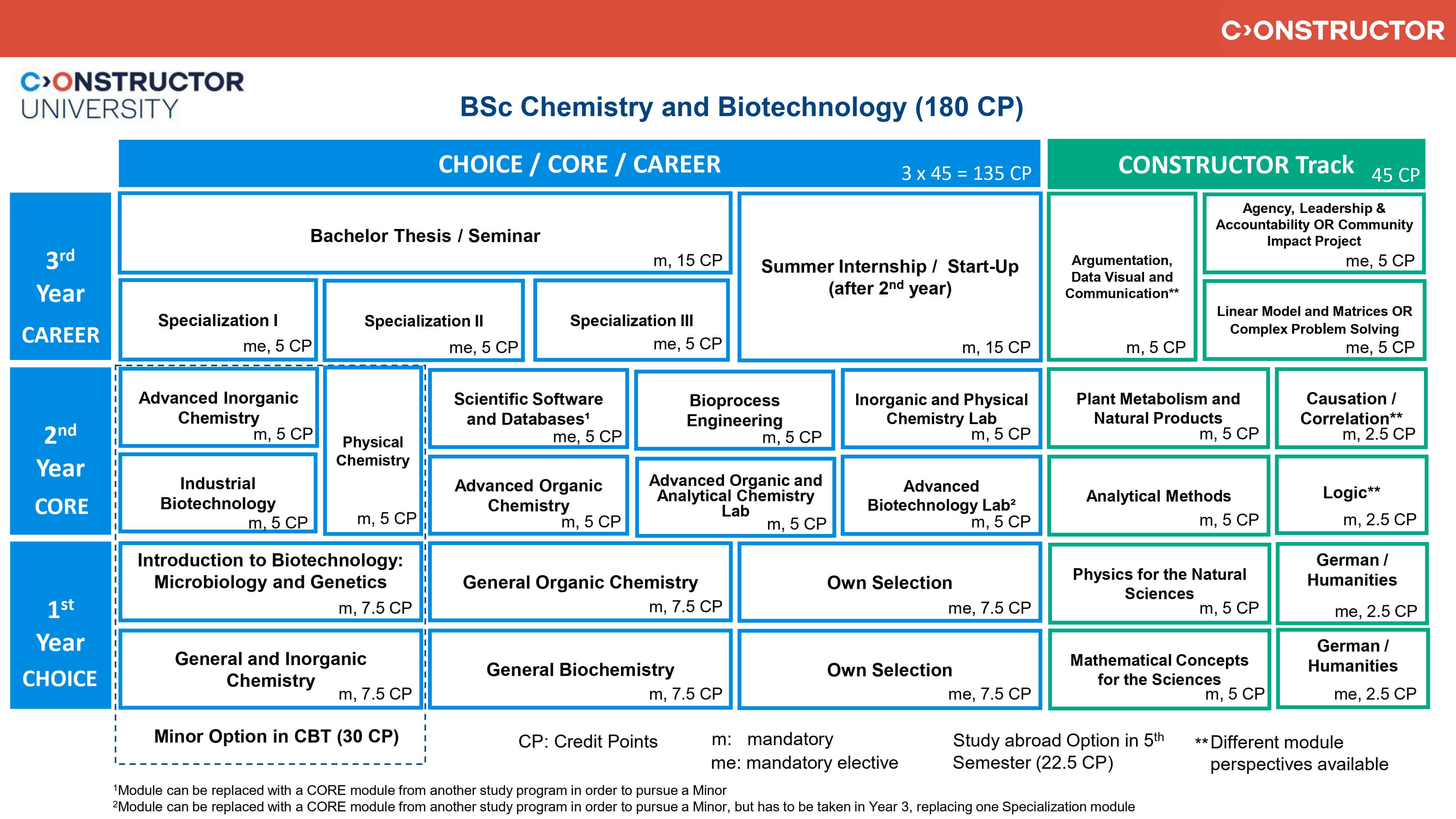
All study programs at Constructor University are accredited by the German Accreditation Council, guaranteeing adherence to high academic quality and international standards. This accreditation confirms that each program meets formal and subject-related criteria in terms of content, structure, and intended learning outcomes.
Join Constructor University in 5 easy steps:
- Complete your application
- Receive your decision after 3-4 weeks
- Learn about financing options
- Enroll and pay your deposit
- Settle in during O-Week and start your studies


Discover all the information you need about our fees and financing options for Constructor students. Our dedicated Student Financial Service Team will assist you in finding the best financial solution that will enable you to pursue your desired program and create a successful career path.
Cost of attendance 2025 / 2026
The direct costs of attendance include tuition, room and board, and fees, as outlined below.
Study with best employability and career perspectives in industry, research or to proceed further master and PhD studies:
Career opportunities for CBT students are diverse and abundant. In general, the combination of chemistry and biotechnology increases employability, since biotechnological applications in the chemical industry are increasingly important. Sustainability and environmental protection are topics of ever-increasing importance in society and industry. In research and development, career opportunities cover the areas of chemicals, pharmaceuticals, fuels, nanotechnology, materials, and energy to environmental monitoring and forensic science.
The educational concept of Constructor University aims at fostering employability which refers to skills, capacities, and competencies that transcend disciplinary knowledge and allow graduates to quickly adapt to professional contexts. Constructor University defines employability as encompassing; i.e. it focuses not only on technical skills and understanding but also on personal attributes, competencies, and qualities that enable students to become responsible members of their professional and academic fields as well as of the societies they live in.

The Constructor Chemistry Student Society is a dynamic community established by current and former Chemistry undergraduate students at Constructor University. This society aims to bring together individuals who share a passion for Chemistry and create a unified platform for them to connect and engage with each other.
Some of the key objectives of this society include:
- Fostering communication and collaboration between students and faculty members
- Building strong bonds between all Chemistry students, from Bachelor's to Ph.D. levels
- Enhancing the undergraduate Chemistry program for future generations of students
- Providing a supportive network for students of Chemistry and related majors
- Encouraging a sense of community by organizing collective events in collaboration with other campus societies.
Through its efforts, the Constructor Chemistry Student Society plays a crucial role in promoting the advancement of Chemistry at Constructor University and fostering a thriving community of learners.
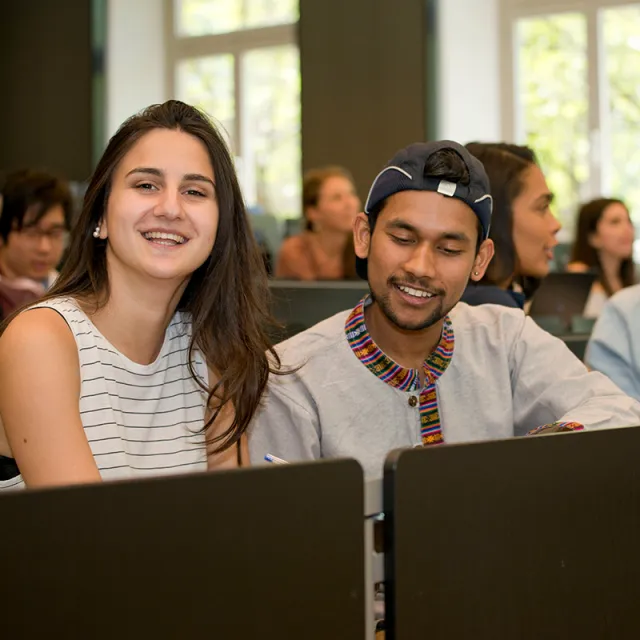
As students of a German university, Constructor students have the unique privilege of being able to join Gesellschaft Deutscher Chemiker (GDCh), the German Society of Chemists. Membership in GDCh offers numerous benefits, including access to internships, scholarships, events, and other opportunities to further their academic and professional development.
Additionally, as members of GDCh, Constructor students are encouraged to participate in the monthly meetings of the society, held at the University of Bremen. These meetings provide a forum for members to connect with other individuals in their field, exchange ideas, and collaborate on projects.
Joining GDCh is a valuable opportunity for Constructor students who are looking to expand their network, enhance their education and career prospects, and stay connected with the latest developments in the field of Chemistry.
This study program is part of the School of Science.
The School of Science focuses on multidisciplinary research and teaching to enhance the quality of life, health, and longevity through science and technology. Different approaches are used to study novel bioactive substances and functional materials at the molecular and nanoscale as well as to advance quantum technologies and exploit resources and energy in a sustainable manner.
Key disciplines in the school include Physics, Biochemistry, Biotechnology, Cell Biology, Chemistry, and Earth Sciences.
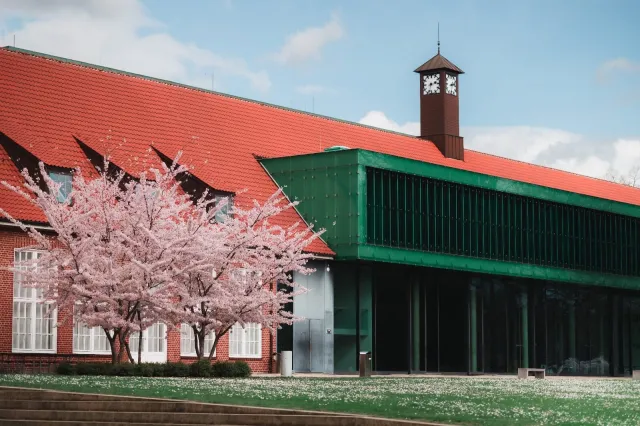

Become part of a global community
Constructor University Students come from all over the world to live and learn at Constructor University. Our student body represents 120 nations. They form an ambitious campus community whose internationality is unprecedented in Europe. Constructor University’s green and tree-shaded 80-acre campus provides much more than buildings for teaching and research.

Call us or write us – we are happy to help you with your inquiry.
Phone: 0421 200 4200
Email: study@constructor.university

